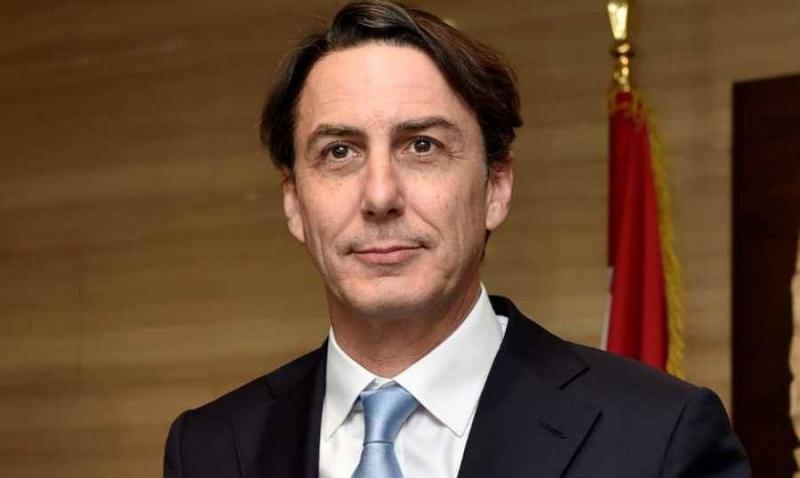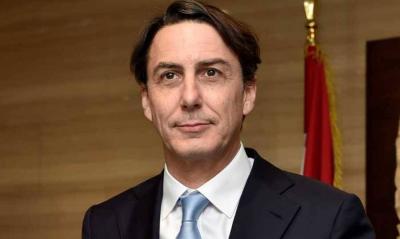The quintet committee has postponed its presidential endeavor until after the holidays, as it is expected to continue its rounds with the remaining political blocs, primarily Hezbollah and the Free Patriotic Movement. The atmosphere that prevailed during the initial phase of their movement led ambassadors to hope that the horizon was no longer closed, especially in light of what they heard from Parliament Speaker Nabih Berri regarding the consultation session that precedes the call for a presidential election session, as reported by "Nidaa al-Watan." By the time the holiday period ends, the communications to achieve a truce in Gaza may have matured, or at least the course of the war on Gaza may become clearer. Israeli Prime Minister Benjamin Netanyahu may either adhere to the UN Security Council's decision to halt the war for two weeks, which could serve as a pathway to a permanent ceasefire, suggesting that consultations between Hamas and Israel have progressed, or the region may be heading toward further escalation, akin to what was witnessed in the southern arena over the past two days.
Two parties are awaiting the ceasefire to undertake fundamental political steps concerning Lebanon: the quintet committee and the U.S. presidential envoy Amos Hochstein. However, once the ceasefire is announced, the working context of each will differ, or rather, the priority will be for the U.S. envoy's efforts concerning the security and political situation in the south, culminating in the selection of a presidential candidate that guarantees stability in the area. While the intense front may prevent him from visiting again, the presidential envoy has not ceased communication and has expanded his working framework from merely addressing the restoration of stability in the south to a comprehensive package that includes the economic aspect. Hochstein is reported to have conveyed his country’s commitment to work with several nations to secure assistance for the reconstruction of villages and towns destroyed by Israeli assaults.
It has become evident that his work encompasses three areas: demarcation of land boundaries to be conducted in phases, then the issue of political stability, and finally the economic aspect, transforming the quintet into an executive tool for U.S. objectives. The "quintet" remains engaged in dialogue or consultation as a prerequisite for opening the doors of Parliament for the election of a president, yet it has not proposed a presidential candidate and has not reached a consensus on a name. They do not collectively oppose the candidacy of Sleiman Frangieh. The new point in the quintet's work lies in preparing the groundwork to elevate the discussion to the level of the foreign ministers of the countries it represents, which is also contingent on the security developments in Gaza and southern Lebanon.
Hochstein appears to be more understanding of the Lebanese sensitivity concerning the south and the relationship with Hezbollah, as he has sidelined the issue of the withdrawal of the Radwan forces that is no longer clearly on the table. Hochstein is not the only one waiting for the ceasefire, along with the quintet. Everyone has become weary of Israel's war against Gaza and the raging southern front, wanting to prepare for the transition to the second phase without preconditions. The Gaza war has exhausted all parties, who believe that Netanyahu is the only one wanting to continue the war to achieve political gains. He has turned the south into an open battlefield without red lines, even extending beyond Baalbek. He seeks to drag Hezbollah into a war in which the latter does not want to engage. Hochstein knows that Hezbollah does not wish to expand the war; otherwise, it would have already done so. He is also aware that the atmosphere in Ain al-Tineh was positive during his last visit and that the delay in his negotiations was due to the failure to reach a ceasefire.
If the quintet had any new proposals, it would not have delayed the completion of its steps until after the holidays, but it is betting, like others, on developments in the Iranian-American negotiations. Its visit to Hezbollah will undoubtedly be influenced by Hezbollah's opening towards Gulf countries which have resumed relations with Syria and have been invited to the Arab summit in Bahrain. There are indications of steps Hezbollah may take in Syria that will have repercussions for Lebanon. Here begins the actual discussion about the presidency in Lebanon unless Netanyahu decides to steer developments into an unpredictable unknown. However, it is feasible to speculate that the quintet's endeavors may be bolstered by the improved Iranian-Saudi and U.S. relations with tangible steps on the ground, just as it is plausible for Hochstein to return with a comprehensive solution package once a ceasefire is announced. The country remains open to all possibilities. The pain of Good Friday resonates in souls. This year is different from the last. Sadness has a place that expands in hearts, but hope remains the hallmark of life, awaiting a new birth. Christ has risen from the dead, trampling death by death, and granting life to those in the graves, according to "Nidaa al-Watan."




